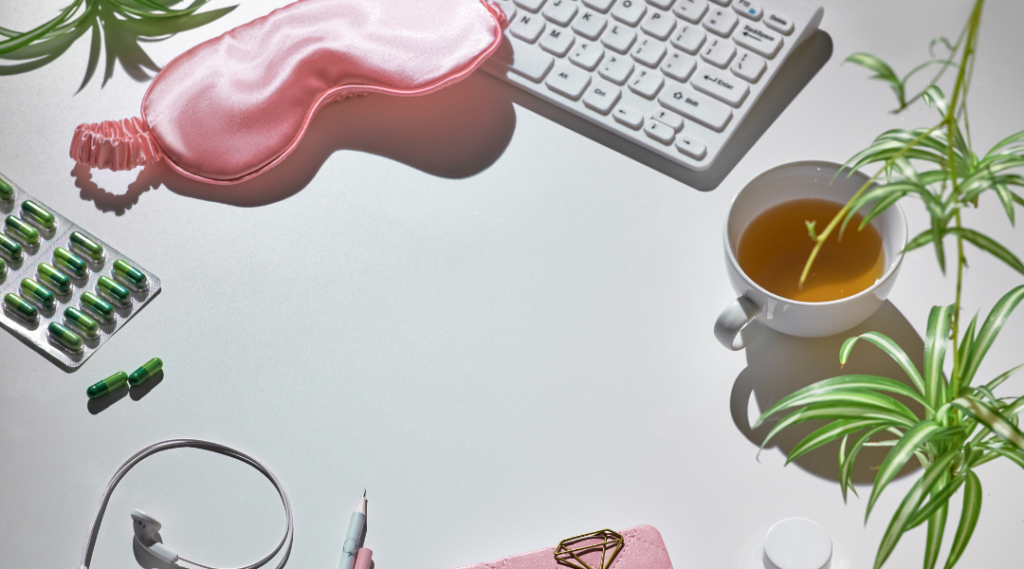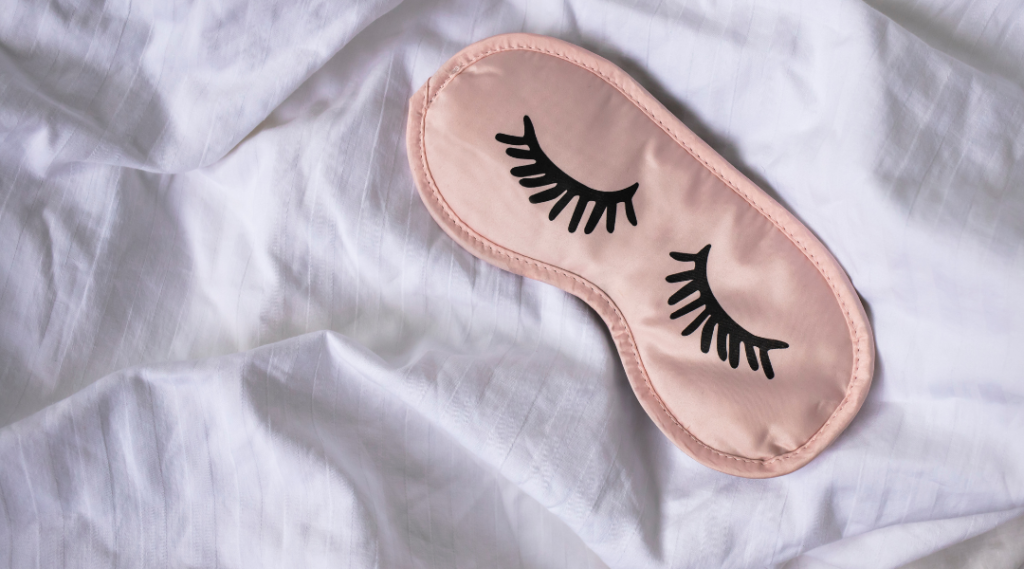Self-Care and Screen Time: 12 Effective Ways To Reduce Screen Time Before Bed

Self-Care and Screentime
Though it may be nearly impossible to avoid screens throughout your entire day, reducing your screen time before bed can significantly level up your nighttime and self-care routine.
Reducing screen time before bed is crucial because the blue light emitted by screens can disrupt the production of melatonin, a hormone that regulates sleep, leading to difficulties falling asleep and poorer sleep quality.
This disruption of the body’s circadian rhythm can result in fragmented sleep, reduced REM sleep stages, and increased nighttime alertness, ultimately compromising overall sleep health.
Additionally, limiting screen exposure before bed promotes relaxation, aids in winding down, and fosters a healthier sleep routine, contributing to improved mental well-being, cognitive function, and physical health.
- Self-Care and Screentime
- Effective Ways To Reduce Screen Time Before Bed
- When To Take A Technology Detox
Below are 12 effective ways to reduce screen time before bed.

Effective Ways To Reduce Screen Time Before Bed
1. Set a Screen Curfew
Establish a specific time each night when you’ll stop using screens. Ideally, this should be at least an hour before you plan to go to sleep.
2. Create a Bedtime Routine
Develop a calming bedtime routine that doesn’t involve screens. Engage in activities like reading a physical book, practicing relaxation techniques, or taking a warm bath.
3. Use Night Mode or Blue Light Filters
If you must use screens before bed, activate the night mode or blue light filter on your devices. These features reduce the amount of blue light emitted, which can help minimize disruption to your circadian rhythm.
4. Avoid Stimulating Content
Refrain from engaging in activities that can be mentally stimulating or emotionally arousing, such as watching intense movies, reading thrilling novels, or engaging in heated debates online.
5. Dim Your Screen’s Brightness
Lower the brightness of your device’s screen during the evening hours. A bright screen can suppress melatonin production, making it harder to fall asleep.
6. Charge Devices Outside the Bedroom
Charge your electronic devices in a location outside of your bedroom. This helps prevent the temptation of using them in bed.
7. Read Physical Books or Magazines
Instead of reading on a tablet or e-reader, opt for physical books or magazines. This can be a relaxing way to wind down without the stimulation of screens.
8. Engage in Relaxation Techniques
Practice relaxation techniques such as deep breathing, gentle stretching, or meditation before bed to help calm your mind and prepare for sleep.
9. Prepare Your Sleep Environment
Make your bedroom conducive to sleep by keeping it dark, quiet, and comfortable. Avoid bright screens that can disrupt your sleep environment. Don’t miss out on these 5 beauty tips that will level up your night routine.
10. Limit Notifications
Disable non-essential notifications on your devices during the evening to prevent unnecessary disruptions and the urge to check your devices.
11. Use an Alarm Clock Instead of Your Phone
Use a traditional alarm clock to wake up in the morning instead of relying on your phone. This reduces the need to have your phone near your bed.
12. Practice Consistency
Consistency is key when it comes to establishing a healthy sleep routine. Try to stick to your chosen screen time reduction strategies every night.
When To Take A Technology Detox
Sometimes reducing our screen time before bed is just not enough, but we would benefit more from an actual technology detox.
A technology detox, also known as a digital detox, is a period of time where we greatly reduce or eliminate all use of technology devices.
It’s a period to focus on the present moment and your self-care. The overuse of screens and technology has been directly linked to symptoms of stress hormones and depression, so taking a digital detox is a great way of helping our mental and physical health.
Ready to take on a 3-day digital detox challenge? Find out more here.

Bottom Line: 12 Effective Ways To Reduce Screen Time Before Bed
Remember that the goal is to create a calming pre-sleep routine that helps you to reduce screen time before bed and allows you to transition from wakefulness to sleep.
Recognizing the importance of reducing screen time before bed is a vital step toward enhancing our sleep quality and overall well-being. By acknowledging the disruptive effects of blue light on our circadian rhythm, we empower ourselves to make conscious choices that positively impact our sleep health.
Embracing screen-free activities before bedtime allows us to unwind, quiet our minds, and transition into a state of relaxation that is conducive to restful sleep.
Through this deliberate practice, we prioritize self-care and set the foundation for more rejuvenating nights, fostering mental clarity, emotional balance, and a stronger connection with our bodies’ natural rhythms.
Experiment with these tips to find a routine that works best for you and promotes a restful night’s sleep.
Like this self-care blog post? Be sure to check out The Ultimate Guide For Better Sleep or 100 Ways To Level Up Your Self-Care Habits.
Want to learn more about sleep? The Better Sleep Council provides further information and educational resources to better understand the relationship between sleep, health, and quality of life.